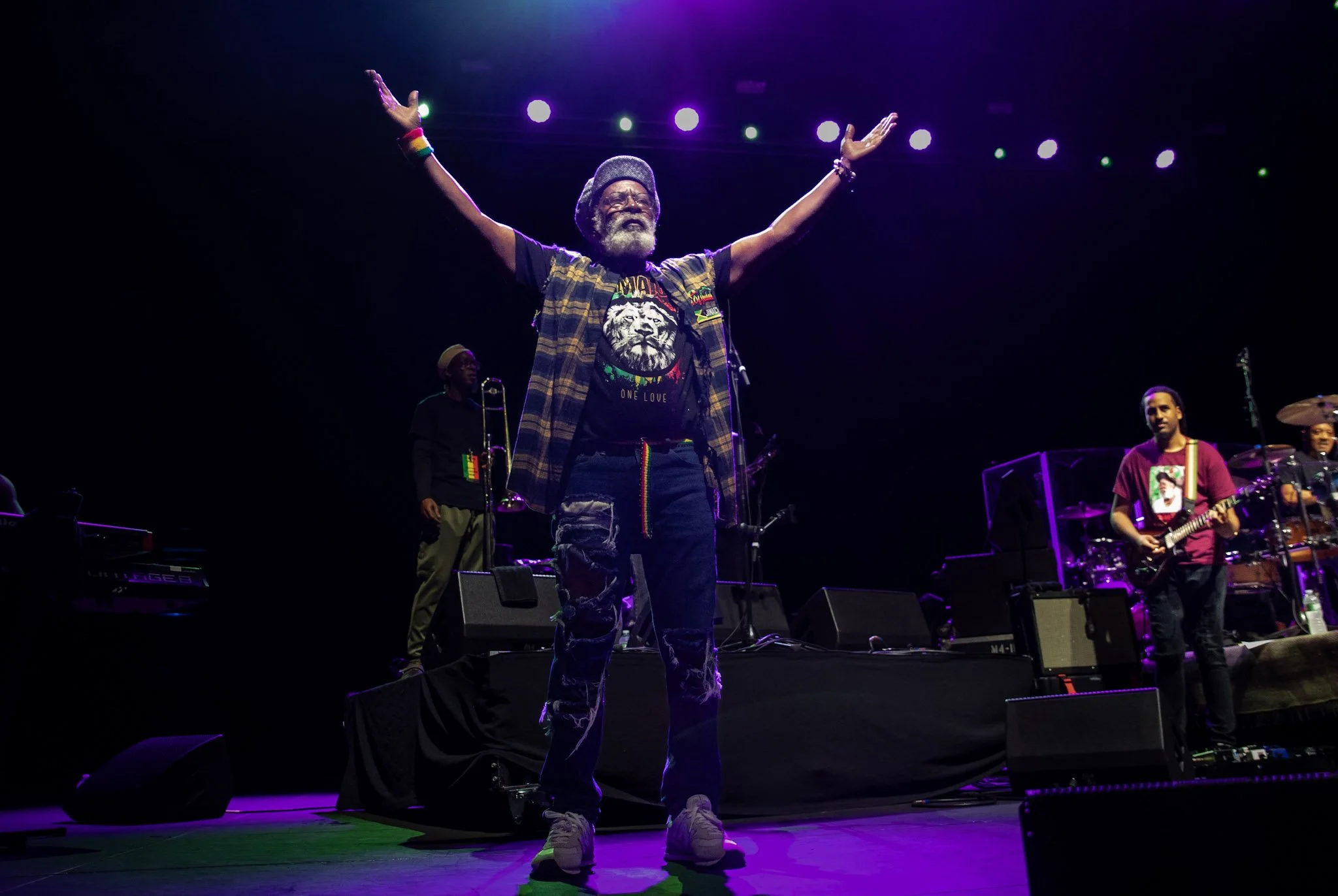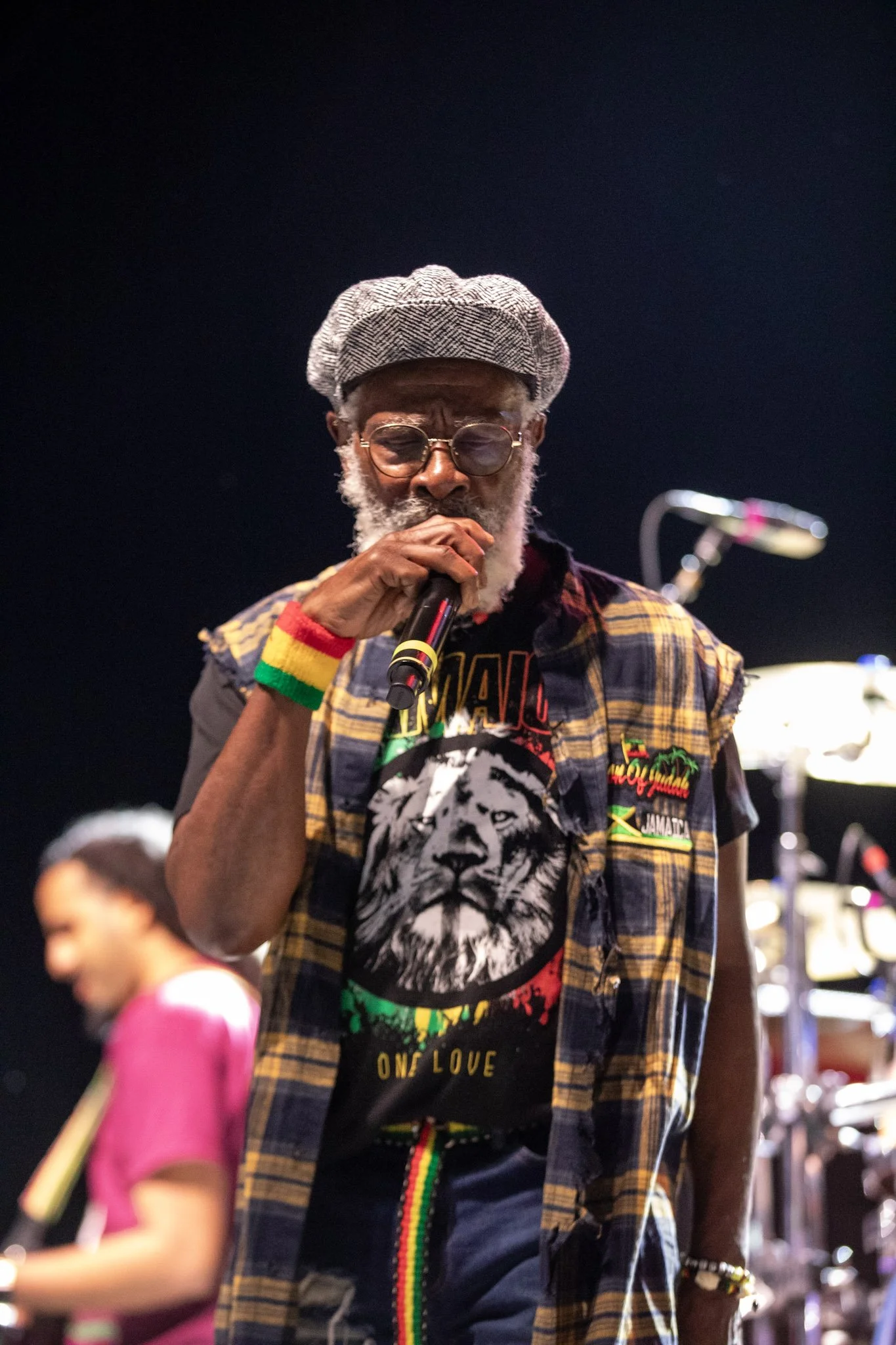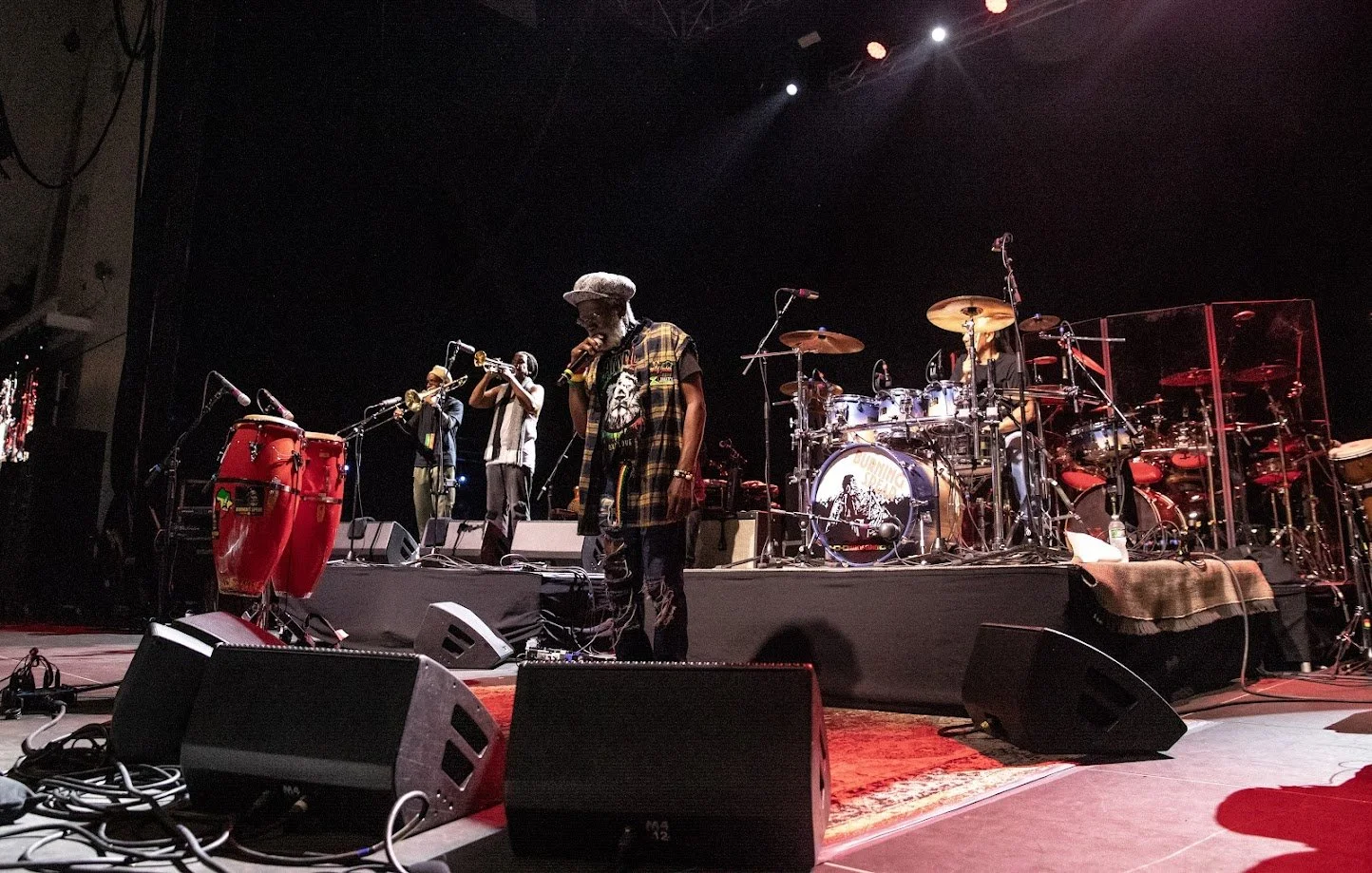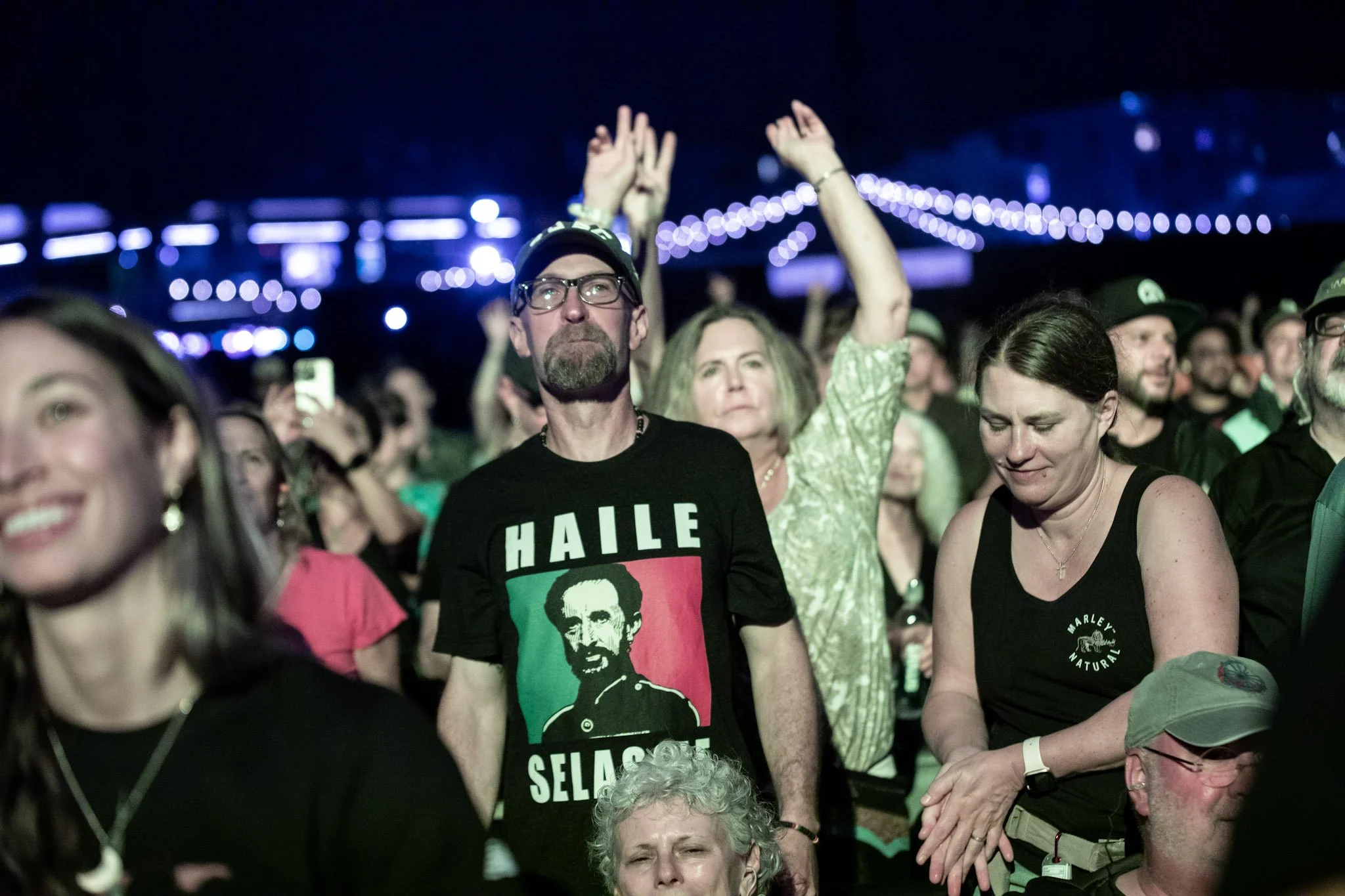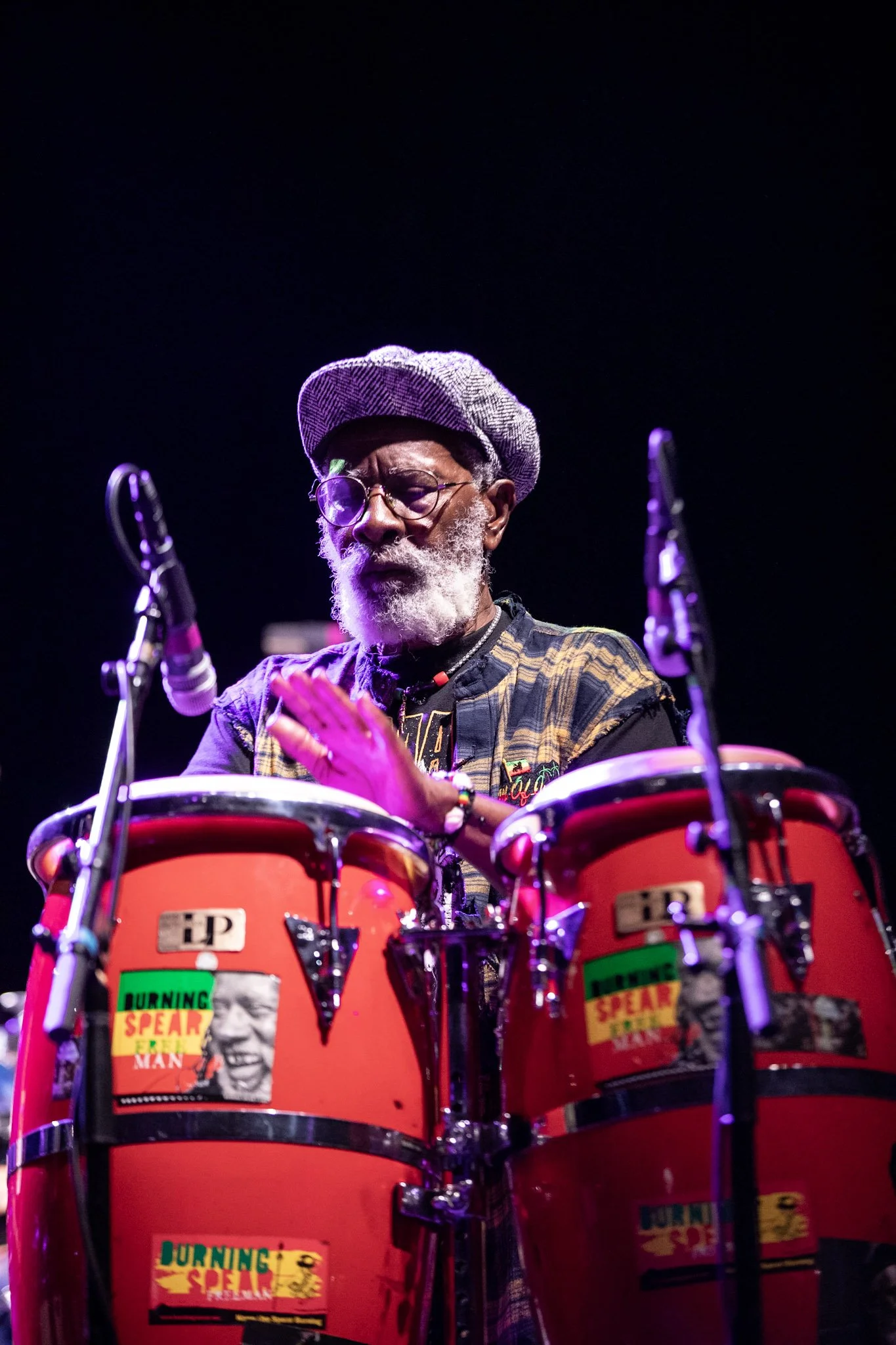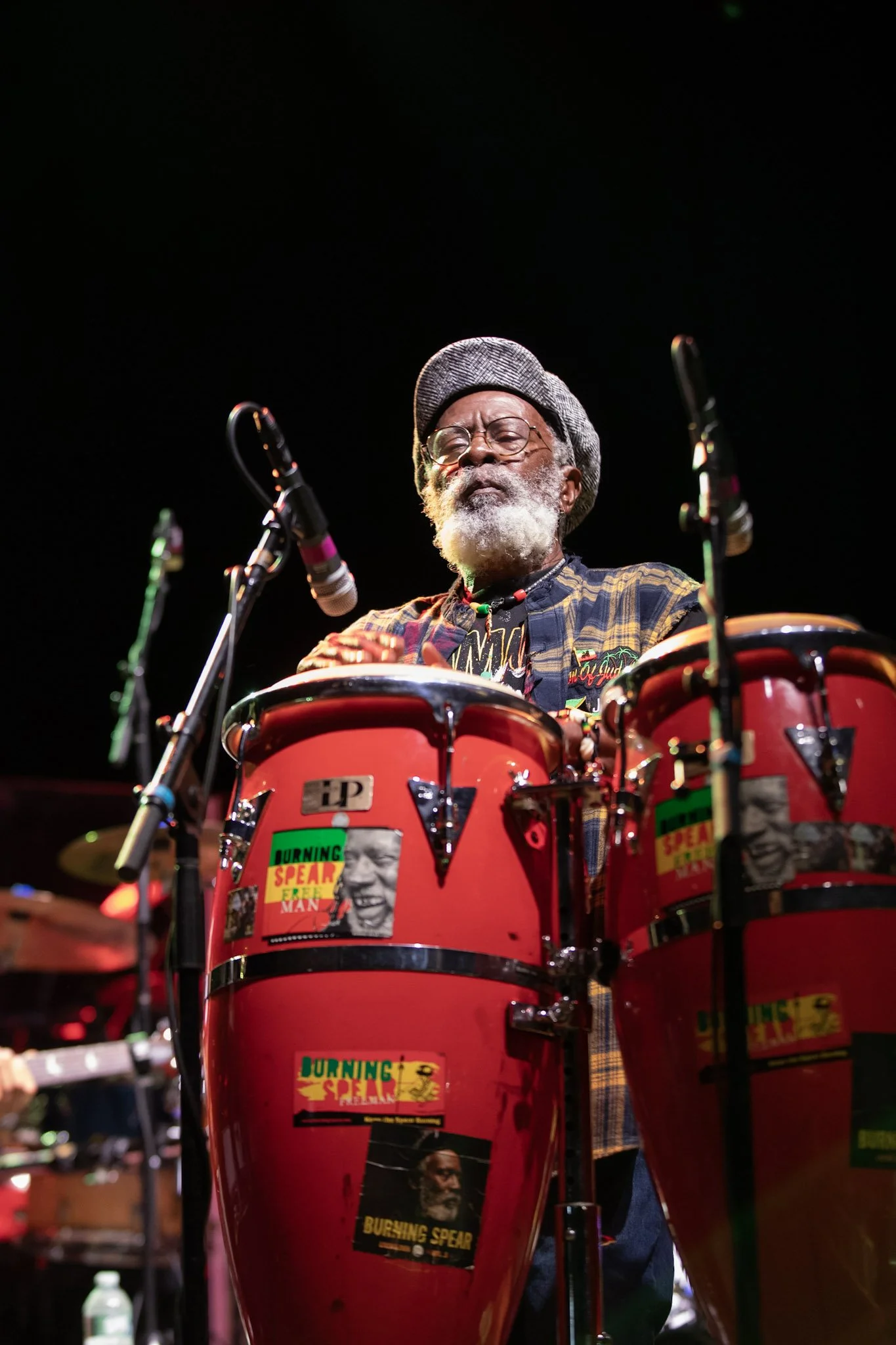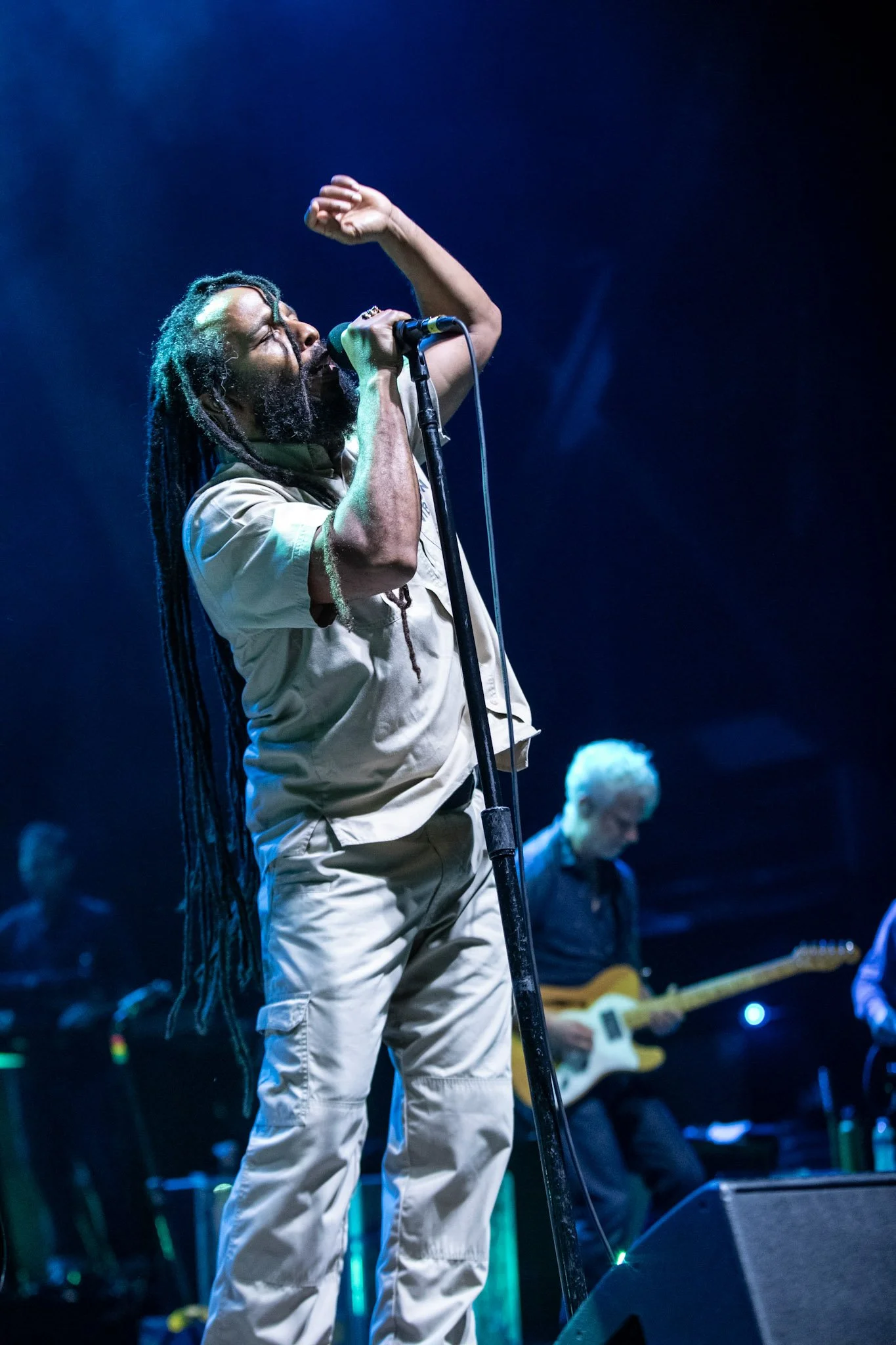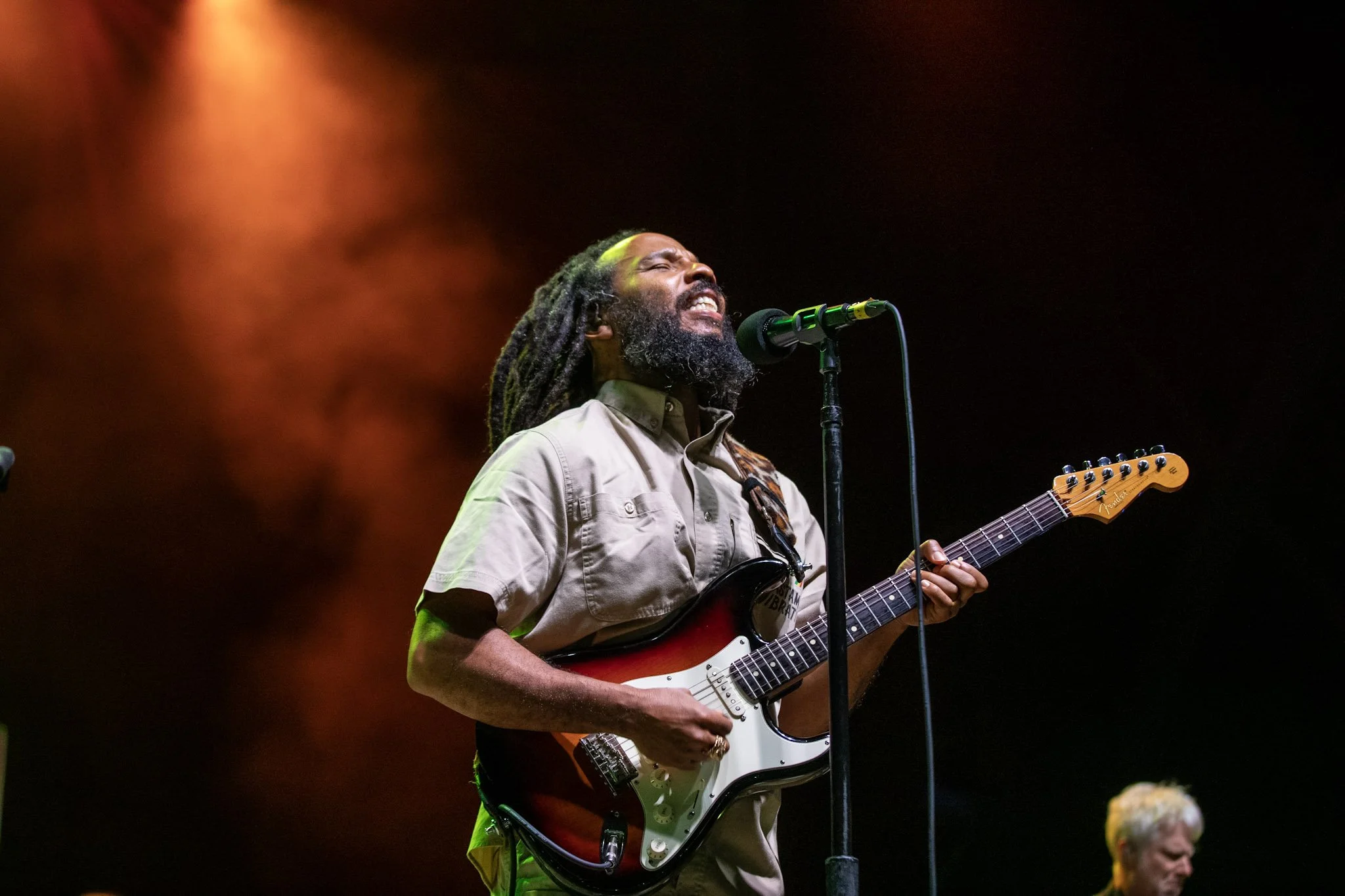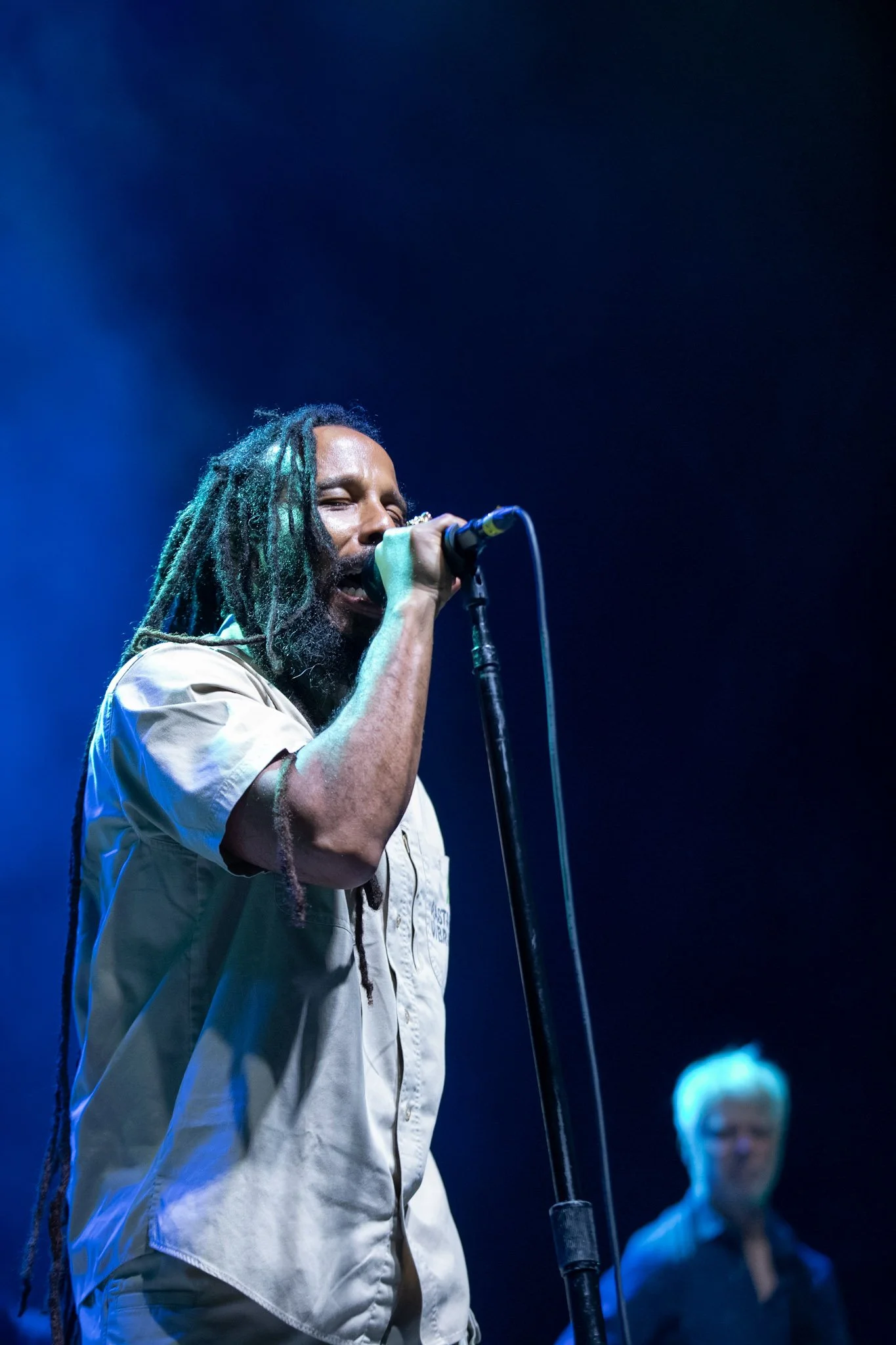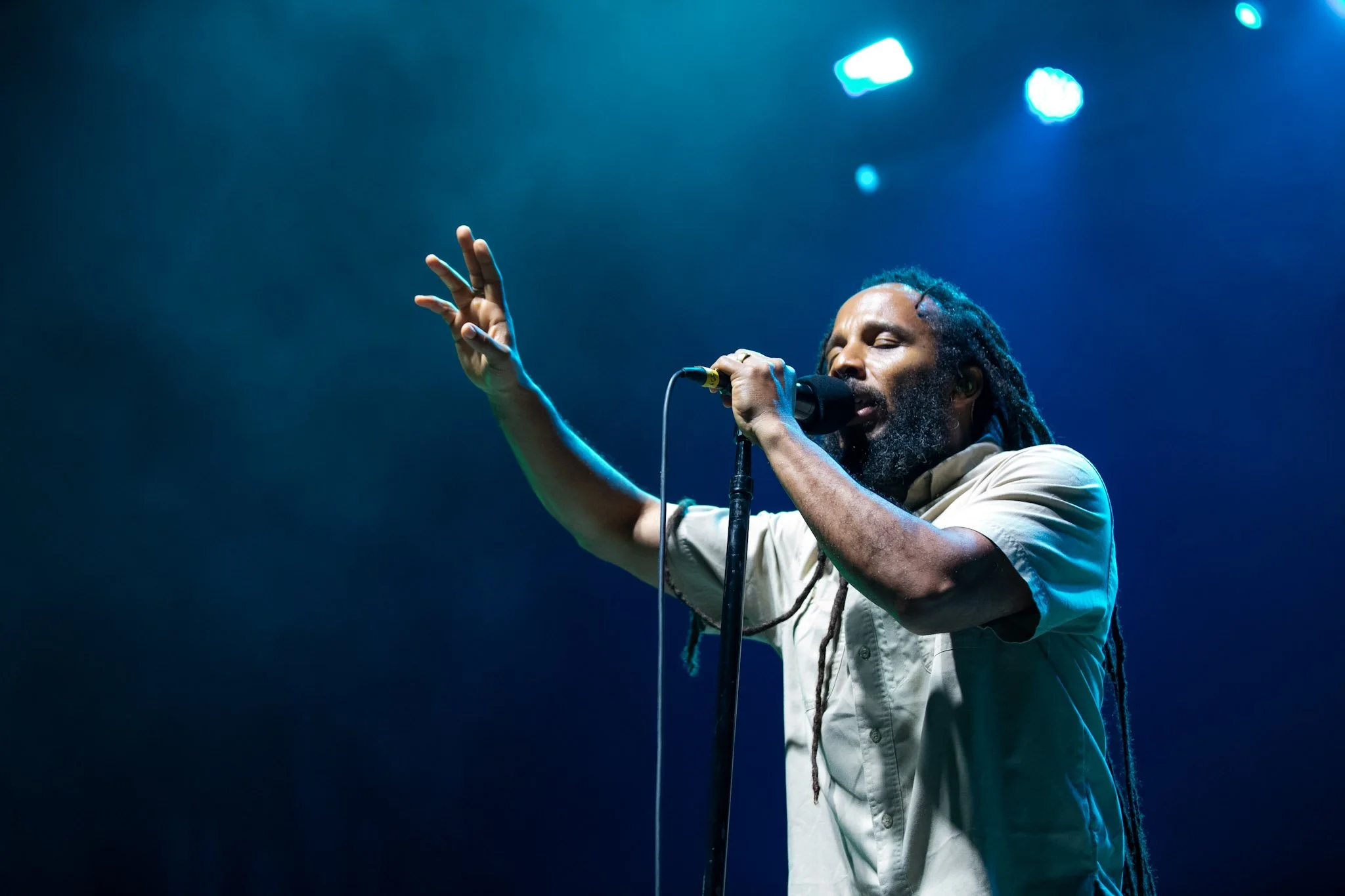The Sacred Sound of Burning Spear
Story and Photography by JD Cohen
Few musical genres have carried the weight of history, politics, and spirituality into the global mainstream as powerfully as reggae.
Born in Jamaica in the late 1960s, reggae emerged as more than a sound—it was a cultural and political force. At the heart of its worldwide rise stood Bob Marley, whose charisma and crossover appeal transformed reggae into an international movement. Yet after Marley’s death in 1981, reggae’s mainstream peak began to fade. Without its most recognizable ambassador, the genre lost its place at the center of global pop culture.
Still, reggae’s influence never vanished. Its DNA spread into other forms: reggaeton in Latin America, ska-punk in the U.S., Afrobeat borrowing dub techniques, hip-hop built on sampled basslines. These spin-offs thrived, even as roots reggae itself seemed to be pushed to the margins.
Among the genre’s great voices, few embody reggae’s raw spiritual and political power as fully as Burning Spear. Born Winston Rodney, and now 80 years old, Burning Spear remains for many the keeper of reggae’s authentic, uncompromised legacy. While Marley’s image defined reggae to the world, Burning Spear carved a different path—deeply meditative, profoundly spiritual, and relentlessly focused on history. His music is not mere entertainment; it is a vessel of Rastafarian consciousness and a living channel of Marcus Garvey’s Pan-African vision.
For more than five decades, Burning Spear’s voice—haunting, insistent, and ceremonial—has echoed from Jamaica to audiences worldwide. His catalog, stretching from early Studio One singles to Grammy-winning albums in the 2000s, stands among the most consistent and spiritually charged bodies of work in reggae. To listen to Burning Spear is to understand reggae not as a fleeting pop trend, but as a cultural tradition with deep political resonance.
After announcing his retirement in 2016, Spear returned to the stage in 2022. Earlier this year, he announced a co-headlining “Do The Reggae Tour” with Ziggy Marley, which launched in mid-September and runs through October. On September 25, the tour stopped at Boston’s Leader Bank Pavilion.
While Ziggy Marley’s catalogue may be more familiar to casual listeners, many in the crowd came specifically for Burning Spear—for the chance not only to hear classic songs but to experience the hypnotic, almost ceremonial atmosphere that his performances create.
At 7:30 sharp, Burning Spear and his band took the stage. Standing center, his head bowed and face shadowed, he allowed the musicians to build slowly into the opening song: “Door Peep,” from his 1973 debut Studio One Presents Burning Spear. The sound was immediately familiar—earthy, hypnotic, anchored by the unique cadence of his vocals. Chanting, preaching, pulling the audience into his orbit as he repeated the lines “We chant down Babylon… Give thanks and praise…”
As the show unfolded, Spear gradually revealed more of himself. Backed by his superb band, he seemed to grow in vitality—dancing, smiling, and eventually speaking directly to the audience. The authority of an elder statesman radiated from him as he called on the crowd to rise up and respond.
He closed with some of his most enduring classics, including “Old Marcus Garvey” and “African Postman.” These songs, staples of the roots reggae canon, carried the weight of both history and prophecy, reminding listeners why Burning Spear remains one of the genre’s most revered figures.
Whatever compelled him to come out of retirement, it is nothing short of a gift. For longtime fans and newcomers alike, Burning Spear’s return is a reminder of reggae’s sacred power—music that uplifts, instructs, and heals.
